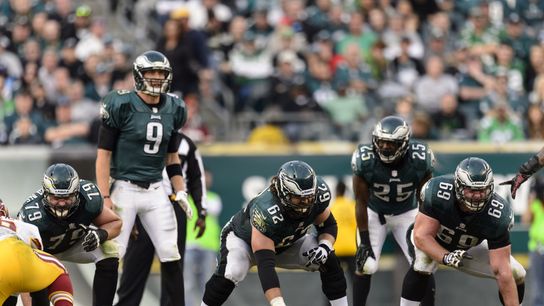Like just about every 74-year-old person ever, Howard Mudd thinks things were better back in his day.
The 38-year NFL coaching veteran is promoting his new book, The View from the O-Line, and told ESPN's Tony Grossi why he thinks the state of offensive line play in the NFL is worse now than it used to be.
And, surprisingly, he didn't blame spread offenses or college football.
From Grossi's piece:
“In the old days, we didn’t have the collective bargaining agreement that we have now, and that is you can’t coach the player from the last game until about June 1 [actually closer to April 1]. They can’t go on the field and do anything. You can’t even talk to them. So these offensive linemen are wandering around, and it’s not an instinctive position. This is truly a skilled position. Skill is something that you learn to do. It isn’t something instinctive like the other guys that catch passes and stuff like that.
“So the offensive lineman, he’s not perfecting his skills in the offseason. So he shows up June 1 and he’s been working out in the weight room, but he’s not perfecting those body movements that you need to do to pass protect.
“In the old days, when we didn’t have that, I spent time with, say, [former Browns defensive line coach] Tom Pratt, or in Indianapolis with [former Colts line coach] John Teerlinck. We’d go on the practice field with gym trunks on and we’d pass rush 80 or 90 times during the practice while they were down there throwing passes, and that’s where they learned to pass protect in the offseason. And that’s not happening. So they show up and they’re expected to make these athletic moves and it doesn’t happen. I think it’s really significant.”
In Mudd's mind, the blame doesn't fall to players, or college football, or even the CBA. He says it's on the coaches -- of which there are maybe 10 or 11 good ones in the NFL.
“People in the NFL, they say these guys don’t know how to play, it takes us two years to coach them,” Mudd said. “We’ve been doing that for 40 years, coaching an offensive lineman who didn’t know how to play when they got here. Go coach them. My brow is furrowed because it pisses me off to say it’s their fault. It ain’t their fault. It’s your fault. Go coach them.”
And, much like many in his age group, the sensor inside his brain that cares about other people's feelings has expired: “I really don’t give a [expletive] if I hurt people’s feelings." Clearly.
